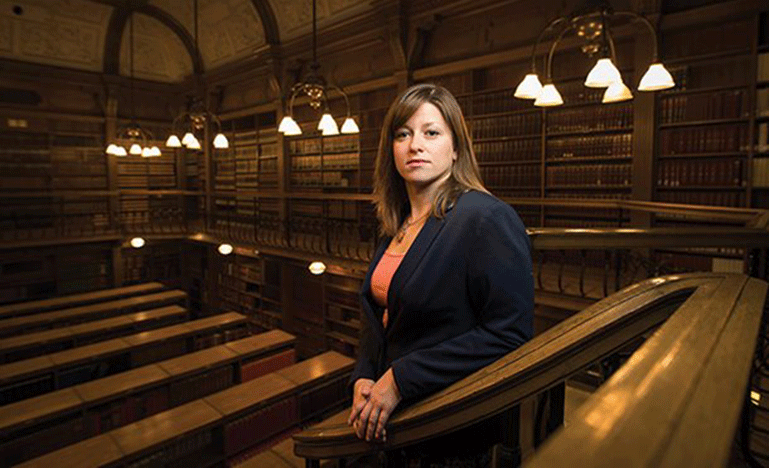In person : Caitlin Pakosh
Caitlin Pakosh is Senior Staff Lawyer at Innocence Canada. She will be pursuing private criminal defence practice in the New Year. Her book, The Lawyer's Guide to the Forensic Sciences, won the 2017 Walter Owen Book Prize for excellence in legal writing and research.

The National: Who has had the biggest influence on you and why?
Caitlin Pakosh: My parents and my grandma, Mimi. My mother is an inspiration – I had the honour of watching her graduate from every one of her educational pursuits after high school, most recently her masters. Seeing her work so hard my whole life motivated me to pursue my educational opportunities and to truly value them. My father came from Saskatchewan to Toronto with next to nothing and worked his way into corporate finance. He taught me you have to try your best and, if things don’t work out, have a good sense of humor, learn, and move forward. My grandma, Mimi, is a seamstress/fashionista, baker, storyteller, artist, and all-around lovely person. She and I share stories over rum and cokes, both agreeing how great the other is while fully acknowledging that we’re the same personality displaced 60 years apart.
N: If you had a personal motto what would it be?
CP: “Lucky never loses.” In life, sometimes you “lose” when you shouldn’t, and sometimes you “win” when you shouldn’t – so try to keep luck out of the equation by working hard and being prepared but anticipate the unexpected. Neither intelligence nor tenacity guarantees the desired outcome. I’ve adopted this motto from a story my father has told me all my life: “I’ve seen Smart lose, I’ve seen Strong lose, but I’ve never seen Lucky lose.” Stay humble. Sometimes you’re Lucky, and sometimes you’re…not.
N: What advice would you give your younger self?
CP: Relax. Enjoy the moment and try to resist the urge to constantly think five steps ahead.
N: What new skill would you like to learn and why?
CP: I would be thrilled to have the language skills of my brother David, who is fluent in French, Spanish, and parts of several other languages. I admire how quickly he adapts to whatever locale he finds himself working in around the world.
N: If you were not a lawyer what would you be?
CP: Professor…mind you, I’d probably need to be a lawyer first! I think it would be a good fit because I enjoy asking questions, finding answers, and then exchanging ideas with others.
N: If you could change one thing about the practice of law what would it be?
CP: Money. To remedy access to justice issues, we have to re-envision public investment in the legal system and the expense of practice. Reducing the costs of entering and staying in the profession would support lawyers to represent worthy cases while also diversifying the Bar.


